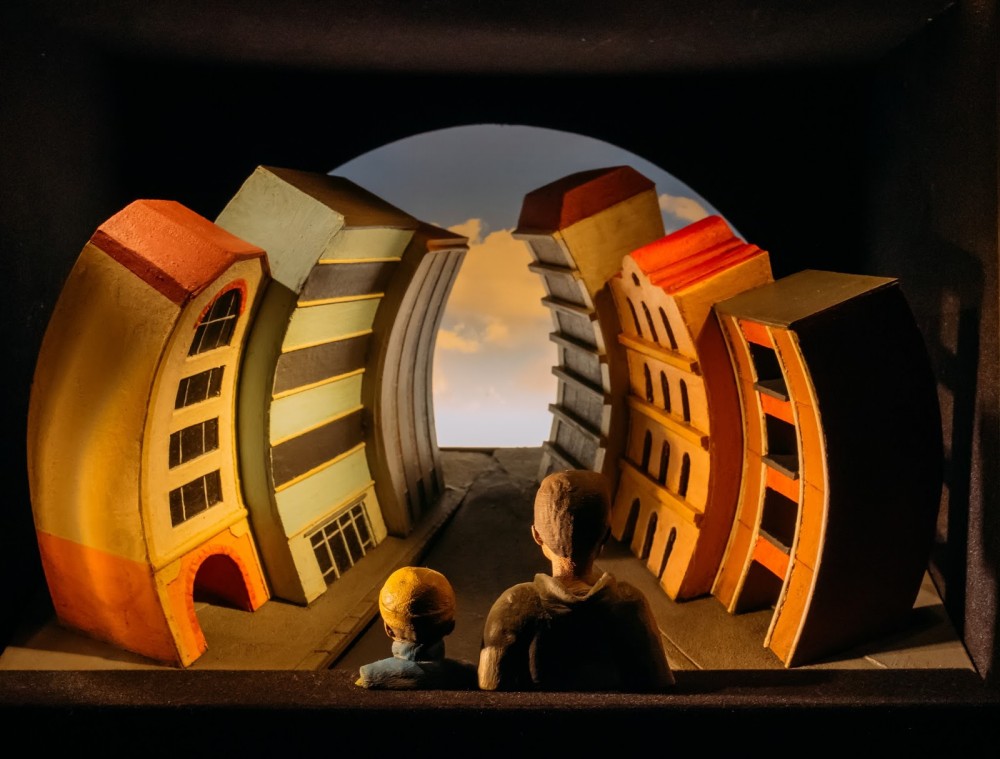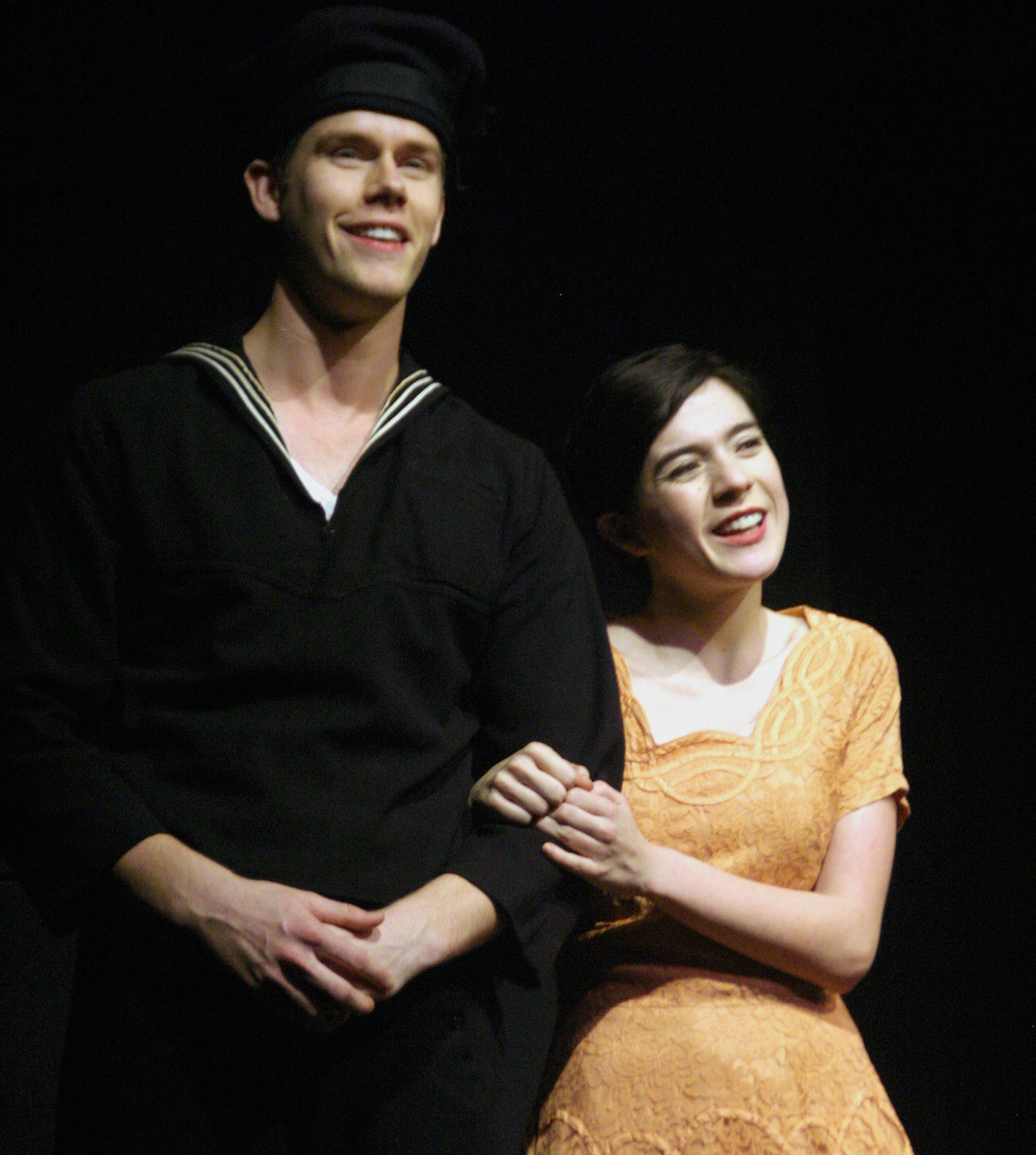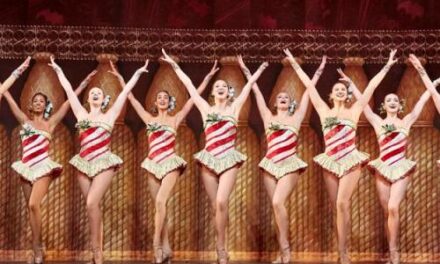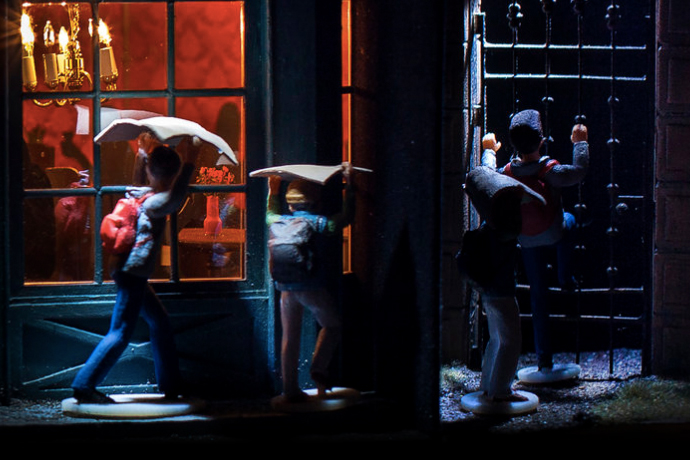
by JK Clarke
Theater, as we know, exists in all kinds of different forms.There are few varieties that have yet to be seen, from the conventional to the inventive: puppetry, musical, immersive, in site-specific locales and so on. The new immersive theater production at the McKittrick Hotel, Flight, however, is an inventive and unique theatrical experience that complicates the very definition of “theater.” A mixed-media presentation that scrolls past the headphone-clad viewer, it’s more old-timey Nickelodeon than live-action theater. Ultimately, however, it’s the content that’s significant, not so much the form. And Flight’s dramatic narrative is so thought-provoking and socially significant that it’s worthy of any audience’s attention, regardless of how it may ultimately be classified.


Based on (and adapted by Oliver Emmanuel) Caroline Brothers’ 2012 novel, Hinterland, Flight is the gripping story of two young Afghani brothers, eight-year-old Kabir (voiced by Nalini Chetty) and 14-year-old Aryan (voiced by Farshid Rickey) who decide to leave their war torn rural Afghanistan in search of a “normal” life, making their way—circuitously, through Kabul, Tehran, Athens, Rome, and Paris—to London where they intend to live with an uncle and aunt. Brothers’ narrative is a pastiche of true stories from actual asylum seekers and refugees which she collected as a reporter for The International New York Times and Reuters. Noticing the diminishing age of refugees she found in shelters and soup kitchens, she wrote the fictionalized (but taken from actual stories) narrative of the two boys who traverse Europe by foot over a period of two years.
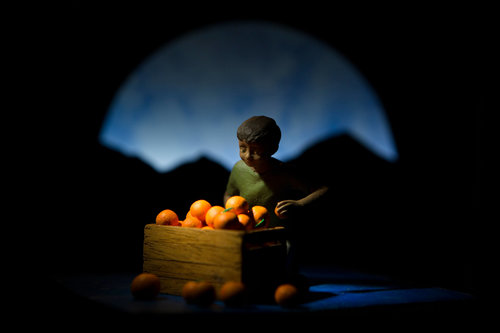

UK-based Vox Motus (who originated Flight at the Edinburgh International Festival, where it received the “Herald Angel Award”), under the direction of Candice Edmunds and Jamie Harrison, have turned Brothers/Emmanuel’s story into a sort of living, three-dimensional version of a graphic novel. Audience members are escorted, one by one, into a dark room where they are seated in cubicles arranged in a circle. Comfortable headphones are placed on their ears and, seated in a cozy leather office chair they are pushed forward into the cubicle and instructed to watch the “screen” in front of them. As the soundtrack begins to play, the “set” rotates on the open space (not really a screen), or mini-stage, in front of them and boxes light up, revealing scenes, or panels, inhabited by small wooden or clay models acting out the story. Music and character dialog plays in the headphones, and the ever-turning carousel then reveals another lit box, with another scene. And so on. We follow the boys as they cross a river out of Afghanistan, then soon find them in Tehran, then not long after working in an orange grove outside Athens, picking the fruit and loading heavy boxes into the back of trucks. Along the way they support each other and repeat the mantra of the capitals through which they must pass to meet their goal: Kabul, Tehran, Athens, etc. Hope abounds, difficult moments occur, and horrifying things take place. But they press on, ultimately making it to Rome, then trying to get Paris. At the French frontier they are stopped by border guards, wary of refugees flooding into the country and represented in the scenes as aggressive, screeching seagulls with piercing eyes, and severe, hooked beaks, their language incomprehensible to the two boys. The use of the gulls to portray French immigration soldiers is reminiscent of Art Spiegelman’s brilliant, award winning 1986 graphic novel, Maus, which tells the story of the Holocaust with Germans represented by cats, Jews by mice and Poles as pigs.
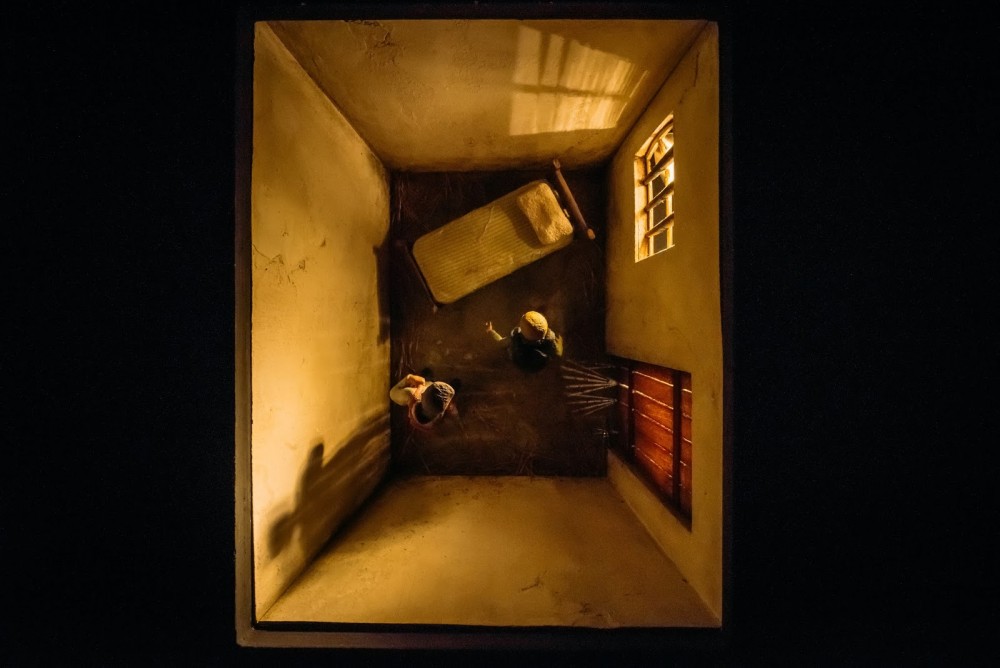

The unique and original delivery mechanism of Flight serves to make its point even more effectively than a traditional theatrical production might. The audience member, immersed in darkness and surrounded by the sounds and voices of the production (Mark Melville, sound design), becomes a part of the story. The only drawback might be that the comfort of the chair, the deep darkness around the set and the solidarity of the cubicle might allow the sleep deprived to doze off quite easily. However, at a mere 45 minutes there’s little risk of that. Which is probably a good thing, because even in that brief a journey, one feels as if they’ve travelled across continents with the boys and cannot help but feel as if they’ve lived some of their experiences. For seekers of unique and emotional theatrical experiences, Flight is not to be missed.
Flight. Through April 8 at the McKittrick Hotel (530 West 27th Street, between Tenth and Eleventh Avenues). www.mckittrickhotel.com 45 minutes.
Recommended:
Lodge at Gallow Green, Chelsea, NYC


